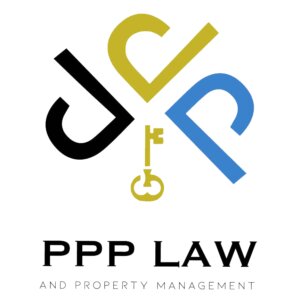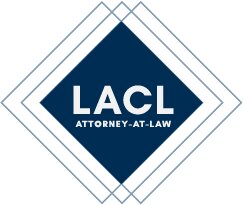Best Business Lawyers in Huai Khwang
Share your needs with us, get contacted by law firms.
Free. Takes 2 min.
List of the best lawyers in Huai Khwang, Thailand
Thailand Business Legal Questions answered by Lawyers
Browse our 13 legal questions about Business in Thailand and read the lawyer answers, or ask your own questions for free.
- What business categories are eligible for BOI promotion in Thailand?
- I run a manufacturing company which is registered in Thailand and we are interested in BOI promotion.
-
Lawyer answer
To gain BOI Thailand promotion, your business must fall within one of the eight stated business categories: Agriculture and agricultural products Light industry Services and public utility Chemicals, paper, and plastic Technology and innovation development Electronic industry and electric appliances...
Read full answer - What are the requirements for BOI promotion in Thailand?
-
Lawyer answer
There are details and nuances; however, at the basic level, your company is eligible for BOI promotion if it meets the following criteria: The company is included in one of the eight eligible business categories. The company performs eligible activities...
Read full answer - What benefits can my company enjoy under the Board of Investment (BOI) promotion?
- I am a tech business owner currently based in Europe, but looking to move operations to Asia, I would like to explore and compare options.
-
Lawyer answer
Once the company is BOI promoted, the following basic incentives may be granted: Exemption of corporate income tax Exemption of import duties on machinery Exemption of import duties on raw materials used in R&D Exemption of import duties on raw...
Read full answer
Thailand Business Legal Articles
Browse our 19 legal articles about Business in Thailand written by expert lawyers.
- The Penalties Of Not Filing Your Income Tax Return As A Foreigner In Thailand
- Thailand has strict tax regulations that apply to both residents and non-residents. In recent years, the Thai Revenue Department has updated its policies on how both foreign and locally sourced income are taxed.For foreigners earning income from either of these sources, understanding these requirements has become more important than ever.... Read more →
- Navigating the Legal Landscape of Digital Payments in Thailand
- The rise of digital payments in Thailand reflects the nation’s broader embrace of digital transformation and financial inclusion. From mobile wallets to QR code transactions, digital payment platforms have reshaped how individuals and businesses handle financial transactions. However, these developments also bring about a host of legal and regulatory challenges. ... Read more →
- Appreciating the Legal Aspects of Crowdfunding in Thailand
- With the power of relatively small donations from a lot of people, crowdfunding has become a great method for generating capital for startups, businesses, and even organizations to support their projects. The emergence of crowdsourcing sites in Thailand has matched world patterns and offers a vibrant channel for social influence... Read more →
About Business Law in Huai Khwang, Thailand
Huai Khwang is a vibrant district located in the heart of Bangkok, Thailand. Known for its dynamic mix of commercial centers, entertainment venues, and residential communities, Huai Khwang has seen a steady rise in both local and international business activity. Business law in Huai Khwang follows the legal structure set by Thai legislation but may have unique local practices given its urban character and diverse population. A wide range of businesses operate in the area, from small family-run shops to multinational enterprises. As a result, understanding the basics of business law is essential for entrepreneurs, business owners, and anyone looking to invest or work within the Huai Khwang business ecosystem.
Why You May Need a Lawyer
Many business situations in Huai Khwang require specialized legal knowledge. Here are some common scenarios where legal assistance is crucial:
- Setting up a company, partnership, or representative office
- Navigating foreign ownership restrictions and investment regulations
- Drafting or reviewing contracts, such as leases, supplier agreements, or employment contracts
- Resolving disputes between partners, shareholders, or with employees
- Protecting intellectual property, such as trademarks and copyrights
- Complying with Thai labor laws and tax regulations
- Handling regulatory compliance for specific industries
- Purchasing or leasing commercial property
- Managing debt collection and enforcing business agreements
- Shutting down or restructuring a business
Having a qualified lawyer helps you navigate the complexities of local procedures, reduce the risk of costly mistakes, and ensures your business aligns with Thai law.
Local Laws Overview
Business operations in Huai Khwang are governed by Thai national laws, particularly the Civil and Commercial Code, as well as local regulations issued by the Bangkok Metropolitan Administration. Here are some key legal points relevant to business activities:
- Business Registration: All businesses must be properly registered with the Department of Business Development (DBD) and receive appropriate licenses if required.
- Foreign Business Act: There are restrictions on foreign ownership in certain sectors. In some cases, a Foreign Business License or promotion under the Board of Investment (BOI) is required.
- Taxation: Businesses must register for tax purposes with the Revenue Department and comply with VAT, corporate income tax, and employer tax regulations.
- Labor Laws: Employers must follow the Labor Protection Act, which covers employee rights, contracts, termination procedures, and benefits.
- Commercial Leases: Lease agreements, particularly for periods over three years, should be registered with the Land Department to be legally enforceable.
- Permitting: Many business activities, especially those in food, entertainment, or health, require specific permits from local authorities.
- Intellectual Property: Protection for trademarks, copyrights, and patents is available but must be registered to be enforceable.
- Consumer Protection: Businesses must comply with regulations to ensure fair advertising, accurate labeling, and customer safety.
Local practices and enforcement can vary, so it is important to consult with a professional familiar with both national and district-level requirements.
Frequently Asked Questions
What type of business entities can I form in Huai Khwang?
Typical structures include sole proprietorship, partnership, limited company, public company, and branch or representative office for foreign companies.
Can foreigners fully own a business in Huai Khwang?
Foreigners face restrictions under the Foreign Business Act. Full ownership is possible in some sectors, but many require a Thai majority partner or obtain special permission or BOI promotion.
How long does it take to register a company?
With all documentation ready, company registration can take as little as a week for a private limited company. Additional permits or licenses may extend the timeline.
Do I need a work permit to run my own business as a foreigner?
Yes, foreigners who work in Thailand, including as company managers, need a proper work permit linked to the registered business.
What are the standard tax obligations for a small business?
Businesses must register for corporate income tax, value added tax (VAT) if annual revenue exceeds the threshold, and pay withholding tax on employee and contractor payments.
What labor laws should I be aware of?
The Labor Protection Act outlines requirements for contracts, wages, working hours, holidays, overtime, severance, and termination procedures for all employees.
Are contracts in English legally valid?
While contracts can be written in English, an official Thai translation may be required for registration or enforcement in courts. Thai versions take legal precedence.
How is business property leased or purchased?
Property transactions are subject to specific laws. Lease agreements longer than three years must be registered. Foreigners cannot directly own land but can lease or own buildings.
What are the penalties for non-compliance with business regulations?
Penalties range from fines to business closure and, in some cases, criminal charges. Regular compliance reviews are recommended.
How can I resolve a business dispute in Huai Khwang?
First, try negotiation or mediation. If unresolved, legal action can be filed at the civil or labor courts. Arbitration is also an option for contractual disputes.
Additional Resources
- Bangkok Business Registration Office: Department of Business Development for company and partnership registration
- Revenue Department: For tax registrations and filings
- Bangkok Metropolitan Administration: For local licenses and operating permits
- Board of Investment (BOI): For foreign investment privileges and promotions
- Department of Intellectual Property: For trademark, copyright, and patent registrations
- Labour Protection and Welfare Office: For employment and labor issues
- Legal Aid and Attorney Networks: For free or low-cost legal consultations
- Embassies and Chambers of Commerce: For specific advice for foreign investors and assistance in connecting with reliable legal professionals
Next Steps
If you need legal guidance for your business in Huai Khwang, begin by assessing your specific needs and identifying the area of law involved. Prepare relevant documents and detailed information about your business plans or issues. Consult with a licensed lawyer or legal firm experienced in dealing with businesses in Bangkok and Huai Khwang in particular. Make appointments for consultations to get tailored advice and an accurate understanding of your legal position. Engage legal services for drafting agreements, negotiating contracts, registering your business, or handling disputes as needed. Regularly review your legal obligations to ensure ongoing compliance and avoid legal complications as your business grows.
Lawzana helps you find the best lawyers and law firms in Huai Khwang through a curated and pre-screened list of qualified legal professionals. Our platform offers rankings and detailed profiles of attorneys and law firms, allowing you to compare based on practice areas, including Business, experience, and client feedback.
Each profile includes a description of the firm's areas of practice, client reviews, team members and partners, year of establishment, spoken languages, office locations, contact information, social media presence, and any published articles or resources. Most firms on our platform speak English and are experienced in both local and international legal matters.
Get a quote from top-rated law firms in Huai Khwang, Thailand — quickly, securely, and without unnecessary hassle.
Disclaimer:
The information provided on this page is for general informational purposes only and does not constitute legal advice. While we strive to ensure the accuracy and relevance of the content, legal information may change over time, and interpretations of the law can vary. You should always consult with a qualified legal professional for advice specific to your situation.
We disclaim all liability for actions taken or not taken based on the content of this page. If you believe any information is incorrect or outdated, please contact us, and we will review and update it where appropriate.
Browse business law firms by service in Huai Khwang, Thailand
Huai Khwang, Thailand Attorneys in related practice areas.













